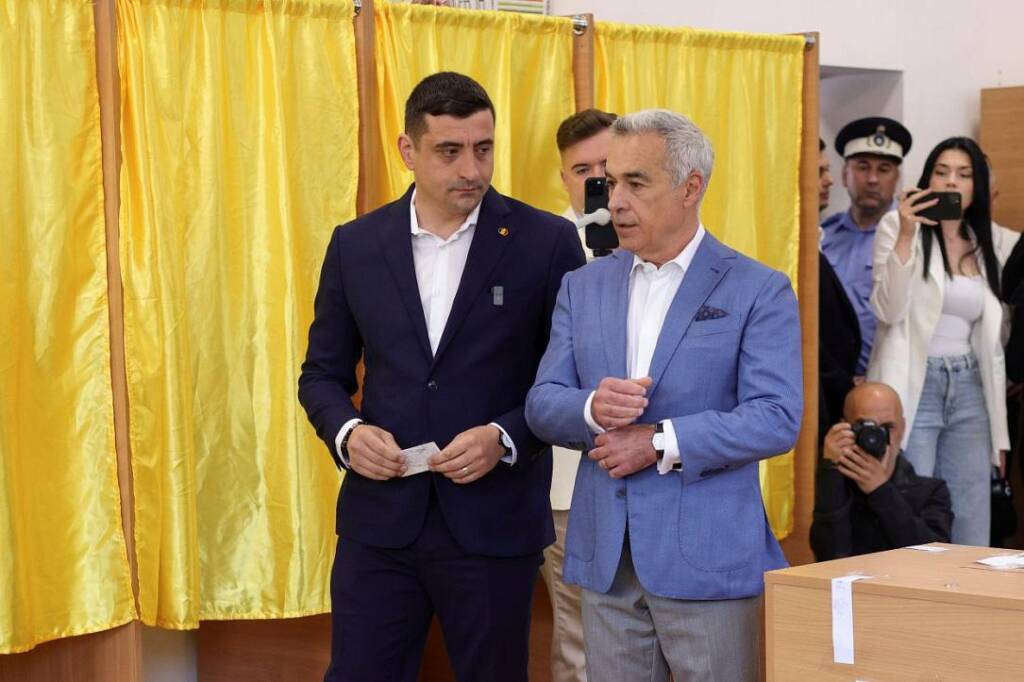In a dramatic escalation of political tensions, George Simion, leader of Romania’s nationalist Alliance for the Union of Romanians (AUR), has accused French President Emmanuel Macron of exhibiting dictatorial tendencies and interfering in Romania’s electoral process. The nationalist candidate for the presidency in Romania, George Simion, harshly attacked French President Emmanuel Macron during a two-day visit to Paris. Simion said he was certain to become “the next president” of his country.
Then, he explicitly accused Macron of interfering in the vote in Romania, stressing that he will win anyway, “despite Emmanuel Macron’s support for my opponent.”
“I love France and the French people, but I don’t like Emmanuel Macron’s dictatorial tendencies,” Simion said in an interview, conducted partly in French and partly in Romanian, with French TV channel C News. “I don’t respect Emmanuel Macron’s intervention in our democracy,” he said.
“The French ambassador to Romania discussed [the elections] with the president of the Constitutional Court that annulled the [2024] elections in Romania,” Simion said, referring to the court’s December decision to annul the vote over Russian interference concerns and order a new vote.
Simion’s remarks come amid a contentious political climate in Romania, where the annulment of the 2024 presidential election has sparked widespread protests and allegations of foreign interference.
The controversy began in December 2024 when Romania’s Constitutional Court annulled the presidential election following a first-round victory by independent candidate Călin Georgescu. The court cited evidence of Russian interference, including the use of social media platforms like TikTok to manipulate public opinion. However, Simion and his supporters have dismissed these claims, labeling the annulment as a “coup d’état” and accusing the Romanian government of undermining democratic processes.
French President Emmanuel Macron has been vocal in his criticisms. Macron also expressed concern over the erosion of democratic norms in Romania, emphasizing the vulnerability of democracies to such external influences.
In response, Simion has strongly rebuffed Macron’s statements, accusing the French leader of dictatorial behavior and unwarranted interference in Romania’s internal affairs. He contends that Macron’s comments reflect a broader pattern of Western leaders imposing their will on sovereign nations. Simion’s rhetoric has resonated with a significant portion of the Romanian populace, many of whom view the annulment as a betrayal of their democratic rights.
The annulment of the election had led to widespread protests across Romania. Simion, 38, is the leader of the far-right Alliance for the Union of Romanians (AUR) party and currently leads the race for the presidency. He has campaigned against military aid to Ukraine while supporting unification with Moldova. He is also very close to the popular leader Calin Georgescu, who had been detained by authorities in 2024 after his rising popularity spooked his opponents.
Simion has now positioned himself as a champion of national sovereignty, advocating for policies that prioritize Romanian interests over foreign influence. His platform includes a strong Eurosceptic stance, opposition to military aid to Ukraine, and a commitment to restoring traditional values.
The ongoing political crisis in Romania has significant implications for the country’s future. Simion’s rise reflects a broader trend of populist nationalism gaining traction in Eastern Europe, challenging established political norms and alliances.
As Romania navigates this tumultuous period, the interplay between domestic aspirations and foreign influences will likely continue to shape the nation’s political landscape. The accusations against Macron underscore the complexities of international relations and the delicate balance between national sovereignty and global cooperation.
